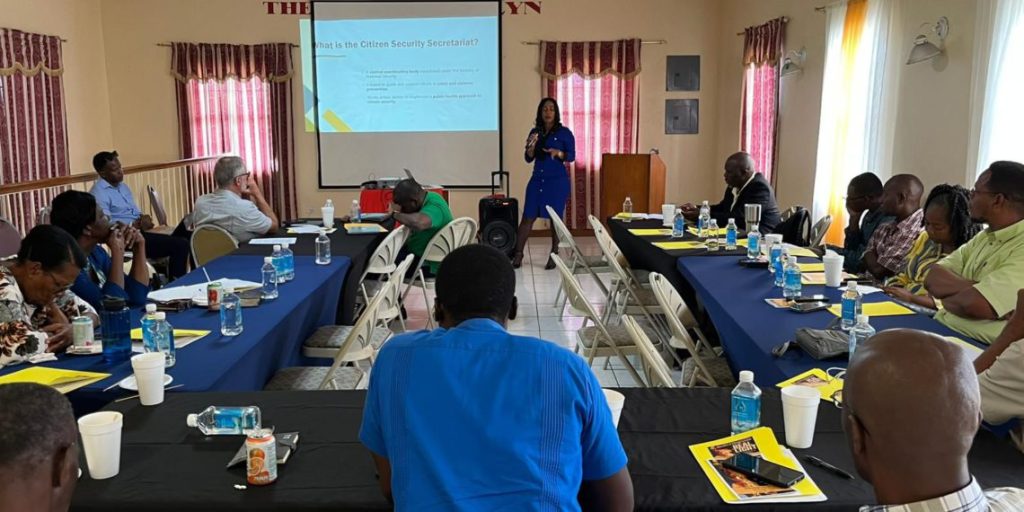Citizen Security Secretariat Reports Significant Homicide Reduction and Enhanced Community Engagement
The Citizen Security Secretariat (CSS) of St. Kitts and Nevis continued its proactive community engagement strategy in July 2025, building upon the government’s public health approach to crime prevention. This approach, championed by Prime Minister Dr. Terrance Drew, has contributed to a remarkable 76% reduction in homicides over the past year. The CSS’s work focuses on addressing the root causes of crime by fostering community unity, empowering youth, and collaborating with religious and national security leaders. This multifaceted approach, which treats crime as a public health issue, represents a significant shift from traditional, solely punitive measures. The Secretariat’s success has garnered regional attention, with neighboring countries seeking to learn from their innovative strategies.
A core component of the CSS’s July activities involved direct engagement with youth. CSS Coordinator Eartha Carey and Research Analyst and Public Health Consultant Hance Richards participated in the Royal St. Christopher and Nevis Police Force’s (RSCNPF) 3rd Annual Crime Intervention Summer Soccer Camp. They led interactive sessions focusing on citizen security, youth responsibility, and the vital role of community cohesion in violence reduction. This initiative exemplifies the CSS’s proactive approach, aiming to guide at-risk youth toward positive pathways and prevent them from engaging in criminal activities. The summer camp is part of a larger national strategy to provide alternative opportunities for young people and create a safer environment for all.
The CSS’s engagement extended beyond youth outreach, encompassing collaborations with religious leaders and law enforcement. Carey and Richards presented to the Antioch Baptist Church Prayer Group and the Pastors’ Conference on Nevis, highlighting the importance of faith-based organizations in promoting community safety. They also engaged with the RSCNPF High Command, equipping national security leaders with evidence-based strategies for fostering social resilience and addressing the social determinants of crime. These collaborations underscore the CSS’s understanding that effective crime prevention requires a holistic approach, involving all segments of society.
Prime Minister Dr. Terrance Drew publicly commended the CSS for its impactful work, highlighting its contribution to the government’s broader violence prevention framework. He emphasized that the CSS’s approach goes beyond traditional law enforcement responses, addressing the underlying socioeconomic factors that contribute to crime. This comprehensive strategy has not only resulted in a significant decrease in homicides but also garnered regional recognition, demonstrating the effectiveness of the public health approach to crime prevention. The Prime Minister emphasized that the CSS’s work was instrumental in fostering a safer and more resilient St. Kitts and Nevis.
The success of the CSS’s approach has attracted attention from neighboring countries. Prime Minister Drew noted that Anguilla recently sought insights from the St. Kitts and Nevis government on their successful crime reduction strategies. This interest reflects the growing regional recognition of the effectiveness of the public health model implemented by the CSS, positioning St. Kitts and Nevis as a leader in citizen security reform. The CSS’s achievements demonstrate the potential of this innovative approach to create lasting positive change and contribute to regional security.
In conclusion, the Citizen Security Secretariat’s community engagement activities throughout July 2025 demonstrated its commitment to a comprehensive, public health-centered approach to crime prevention. By engaging directly with youth, collaborating with religious leaders and law enforcement, and addressing the socioeconomic drivers of crime, the CSS is fostering a safer and more resilient society. The success of their efforts, as evidenced by a significant reduction in homicides and regional recognition, highlights the effectiveness of this innovative approach and positions St. Kitts and Nevis as a model for other nations seeking sustainable solutions to crime and violence. The CSS’s work underscores the importance of proactive community engagement, collaborative partnerships, and addressing the root causes of crime to achieve lasting positive change.
Share this content:








Post Comment